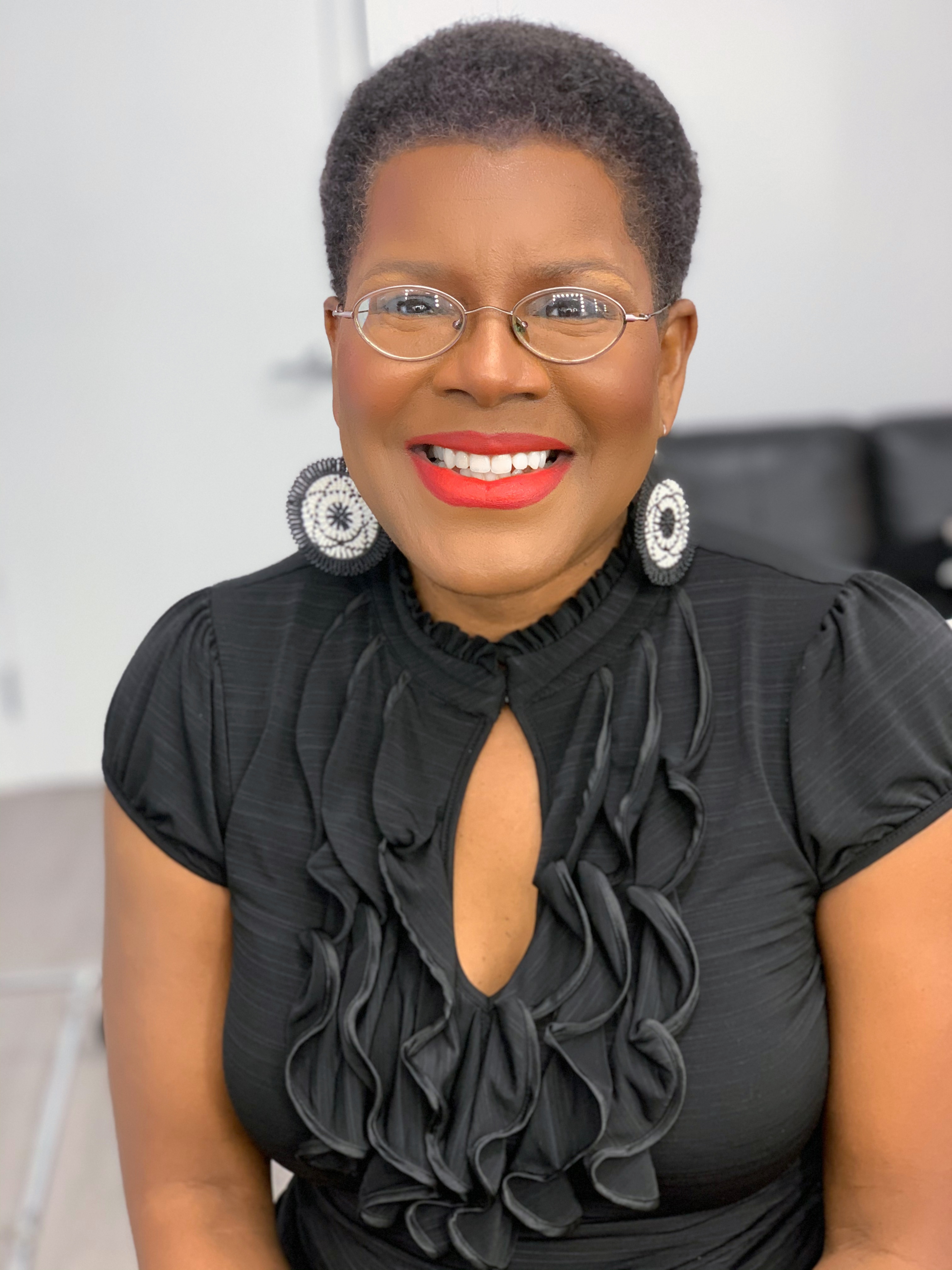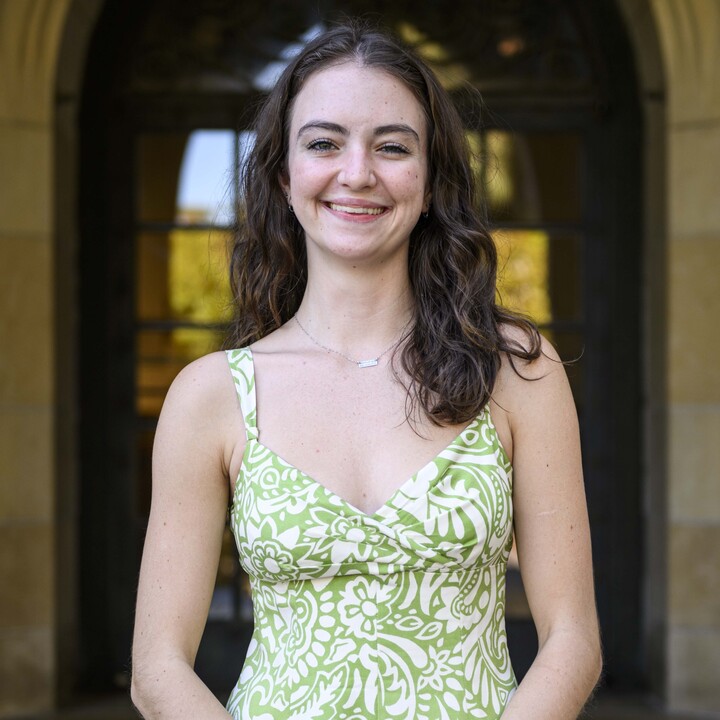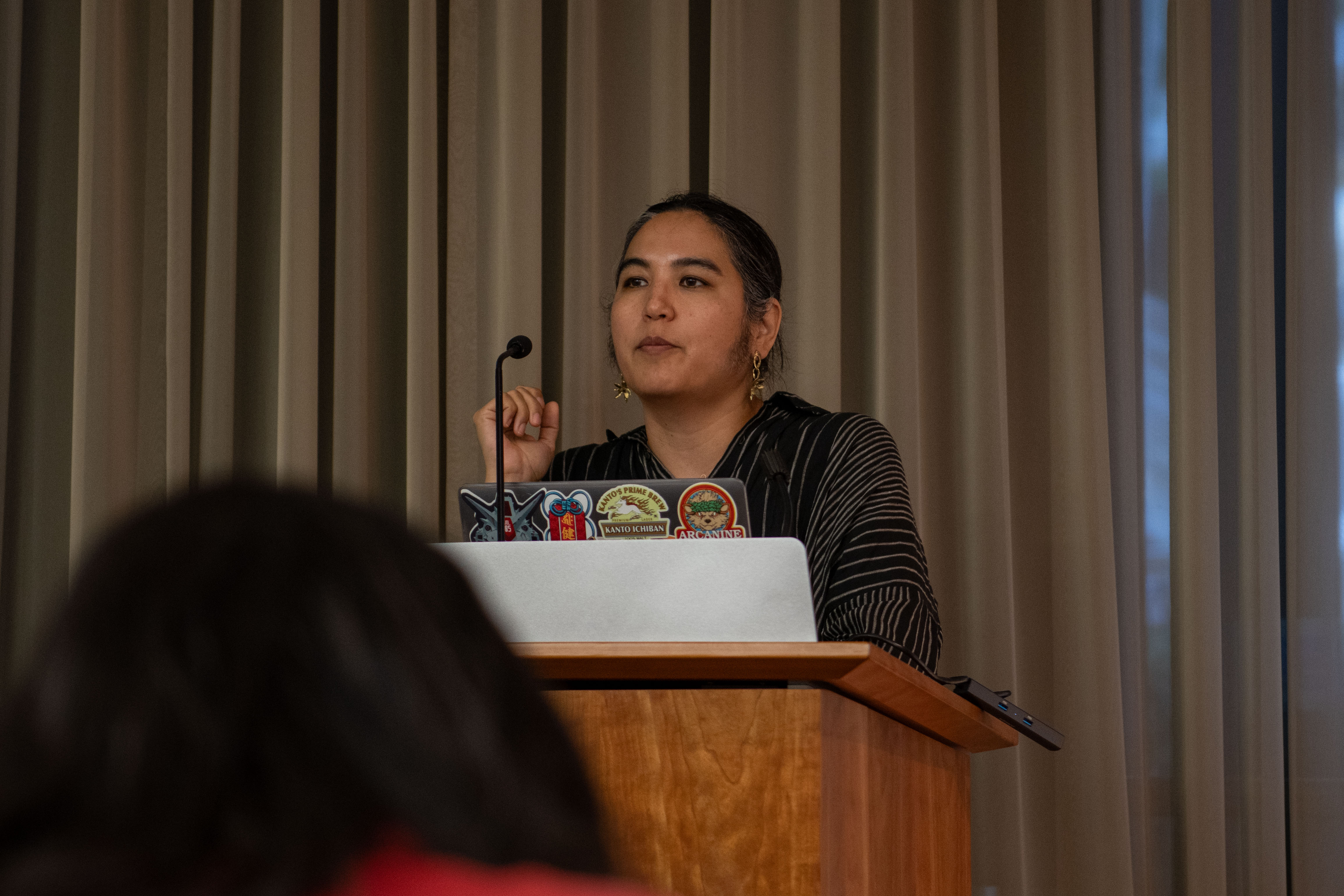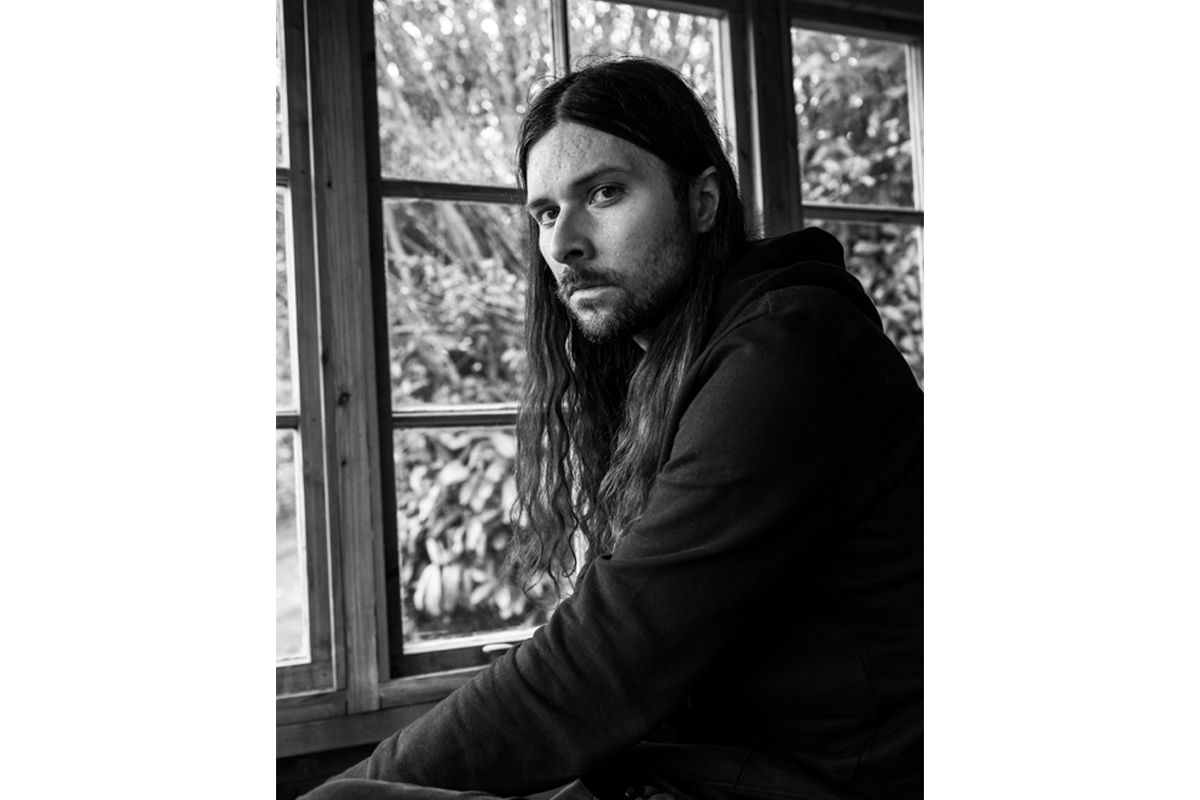Q&A: Tananarive Due talks connections, writing process for new story ‘The Rider’

Tananarive Due is pictured. The author, who is also a continuing lecturer in the Department of African American Studies, wrote a story for Jordan Peele’s anthology “Out There Screaming: An Anthology of New Black Horror.” (Courtesy of Tananarive Due)

By Catherine Hamilton
Oct. 26, 2023 5:21 p.m.
This post was updated Oct. 31 at 8:11 p.m.
In her latest short story, Tananarive Due invites readers on a macabre journey.
Set during the Freedom Rides, Due’s new short story, “The Rider,” was released Oct. 3 in the Jordan Peele anthology, “Out There Screaming: An Anthology of New Black Horror.” The story follows two college-aged girls, who are based on Due’s mother and aunt, on their way to the Freedom Rides. In the short story, Due, who is a continuing lecturer in the Department of African American Studies, explores the themes of grief, trauma and transgression through Black horror.
Due spoke with the Daily Bruin’s Catherine Hamilton about her writing process and personal connection to the story.
[Related: Q&A: Author Justin Torres on pushing creative boundaries in new novel ‘Blackouts’]
This interview has been edited for length and clarity.
Daily Bruin: What is this story about, and what inspired you to write it?
Tananarive Due: I had a vague notion that I wanted to set my story in the past, like the Jim Crow era, which is an era I know very well from working on my novel, “The Reformatory,” but I wasn’t quite sure. And so, basically feeling that deadline pressure, they say write what you know – and that was what I decided to rely upon. Instead of trying to create characters from thin air, I spoke to my mother’s spirit, and I asked my aunt’s permission to base those characters on my mother and aunt when they were in college.
That was really the root of it. I imagined those photographs my parents used to show me of these Greyhound buses with plumes of smoke rising because they got firebombed and these protesters – Black and white, often pastors and rabbis – bloodied and beaten. That to me is horror. Imagine if you went back in time, and you were in 1961, and you were in Freedom Rides – that would be so scary. So the setting, being in the 1961 period, would be so scary.
Between that scary time period and that scary setting, I just wanted to add a bit of a fantasy element, a little bit of an alternate history element, (with) these two characters, who are my mother and my aunt, (I imagined) them as these playful, younger women, these college students that they were, and what would happen if they were on their way to the Freedom Rides, and then a monster appeared in the road? That’s the story – what happens, and why the monster (is) there. What does the monster want? That’s how the story unfolds.
DB: What is your writing process like?
TD: My process is typically to find something that scares me, which is the setting and the time period, and some kind of grief or transgression, usually where the characters are suffering. The trauma they’ve already been through is part of the doorway, in my view, that in all horror leads to the supernatural – grief, trauma and transgression. It’s almost always one of those things, sometimes more than one of those things, that will lead into supernatural horror. And then take that element from real life that scares me, take that grief, and turn it up to 11.
It’s that fantasy element for me that helps me pull away a little bit emotionally from the true trauma my mother suffered and find a way to enjoy the story. I knew for weeks I wanted it to be set in the Civil Rights era but no plot, no characters, nothing. And then just the break, realizing just make it about Mom. Make it about Mom and Aunt Priscilla, and if (they) met a creature on the road. Even though I didn’t get a chance to literally ask my late mother permission, considering that she was the first horror fan in my life – she’s the one who got me hooked on horror movies in the first place, she’s the one who bought me my first copy of a Stephen King novel, which was “The Shining” – I think she would appreciate the spirit of the story.
[Related: Megan Barlog Hughes empowers authors in digital age through Purple Shelf Media]
DB: What do you hope readers take away from this story?
TD: I really would like readers to feel somewhat of a sense of relief that the story ended in a different way than they might have been expecting. And also a sense of gratitude, which is what I feel for the sacrifices that our previous generations have made. Not everybody was in the Civil Rights Movement, but so many families have withstood so much to try to create a better world for their children. And that’s really the sense I want people to walk away with, (to show) these people were so brave. And I’m so grateful that they did what they did.





